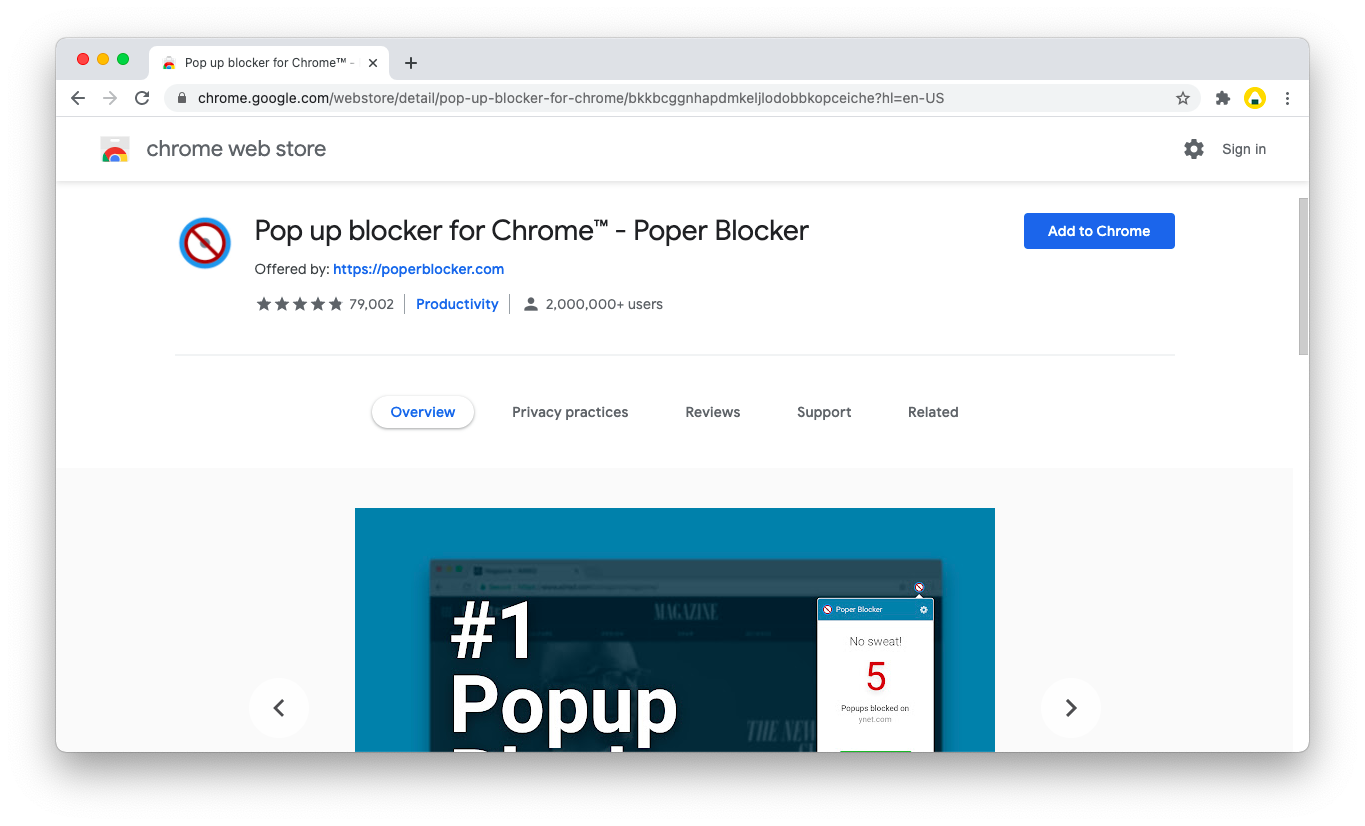

Ghostery isn't as widely used and known as AdBlock and doesn't block as many ads, which is why AdBlock is our overall best pick.

It stops all sorts of cookies and trackers, including those on social media pages, plus annoying ads and pop-ups. Ghostery is another good ad-blocking option, but it's unique because it takes you to websites' privacy policies and opt-out forms. If you’re using Google Chrome on a computer, you can follow the method below to disable the pop-up blocker. AdBlock also doesn't require any personal information before downloading the Chrome browser extension. It doesn't track your online movements or keep tabs on your browser history, making it secure, too. We recommend AdBlock because of how easy it is to use and the extensive amount of ads it automatically blocks, including banner and video ads. Since people have become smarter about creating malware and phishing schemes, you'll want that extra protection built right into the browser. On a more productive level, the best blockers also stop trackers from capturing your browser history and following your online activity. While it is somewhat ironic that the search giant - which happen's to be the world's largest advertising company - is cracking down on online ads, the update will certainly improve your browsing experience.These browser extensions tap into long lists of ad companies to stop pop-ups, banner ads, video commercials, and other online ads. The company has already cracked down on ads on its mobile browser: Chrome Canary allows users to block ads that the browser deems "intrusive."

This is just the latest step in Google's crusade against advertisements. "1 out of every 5 user feedback reports submitted on Chrome for desktop mention some type of unwanted content," reads Google's blog post about the new update. This is apparently exactly what users wanted. Google also released a tool for developers to check whether any of their sites' practices will be blocked by the new features. And because of a number of new developer tools and APIs, it's now much more difficult for malicious sites to redirect you to other sites, even if they don't employ pop-ups. The browser now comes with a built-in pop-up blocker for websites that make "close" buttons on pop-ups hard to find (such as third-party video hosting websites that disguise ad buttons as "play" buttons). The feature is one of many features included in the new Chrome release intended to make web browsing a safer place, despite certain kinds of intrusive advertising. Amazon to sell Apple TV, Google Chromecast after two-year ban


 0 kommentar(er)
0 kommentar(er)
